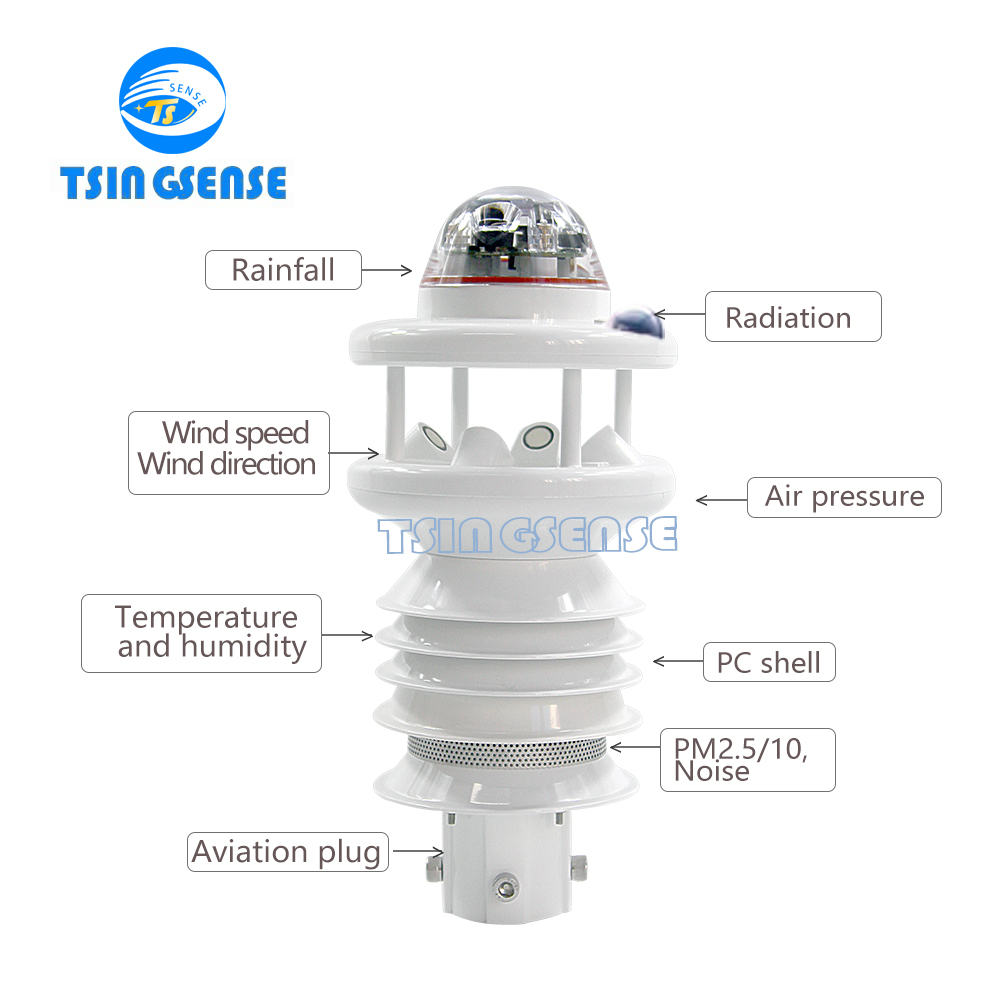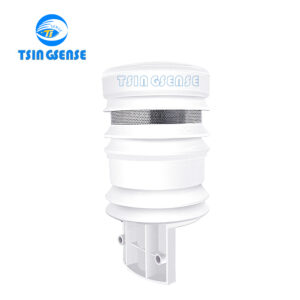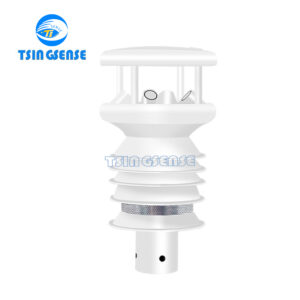Product description
TS MWDS10 integrated dust monitoring sensor is a miniature instrument mainly used in smart cities, smart lamp poles, and smart construction sites to monitor meteorological and environmental factors. The meteorological factors that can be monitored include temperature, humidity, wind speed, wind direction, air pressure, rainfall, Radiation, etc., and the environmental factors include PM2.5, PM10, noise, etc.The equipment system is modular in design, and users can flexibly configure it according to their needs. It can integrate solar power supply system, LED display screen and GPRS wireless transmission module, etc.
Class: Weather Sensors, Air Quality Sensor, Gas Sensor
Use: Meteorological monitoring
Installation type: Pole mounting
Description: Integrated weather sensors
Model: TS MWDS10
Series: TS MWDS series
Features: Ultrasonic, maintenance-free, RS485 output
Origin:Beijing, China
Principle: ultrasonic
Precision: 0.1
Reaction time: 1s
Operating temperature: -40-60 ℃
Humidity range: 0-100% Rh
Size:Length: 120mm, Width: 120mm, Height: 277mm
Weight: Approx. 0.7 kg
Output interfaceL: RS485,RS232,SDI12,4-20mA,0-5V可选
Power supply: 9-30VDC (optional solar and 220v power supply)
Power consumption: < 0.4 watts
length: Default 3.5m (extensible)
Applicable to: The diameter of the pole is 10-30mm
agreement: It also supports ASCII protocol and Modbus RTU protocol
Technical Parameters
Parameter | Measuring range | Resolution | Accuracy | Measuring principle |
Air Temperature | -40℃~+60℃ | 0.1℃ | ±0.2℃ | Platinum resistance |
Air Humidity | 0%~100%Rh | 0.1%Rh | ±2%Rh | Capacitance |
Air pressure | 10~1300hPa | 0.1hPa | ±0.3hPa | Silicon piezoresistive |
wind direction | 0~360° | 1° | ±3° | Ultrasonic |
Wind speed | 0~40m/s | 0.1m/s | ±0.3m/s or 3% | Ultrasonic |
Rainfall | 0~24mm/min | 0.1mm/0.01mm | ±5% | Optical/Radar |
Radiation | 0~2000w/㎡ | 0.1w/㎡ | ≤ 5% | Silicon Photodetector |
Noise | 30-130dB | A weighting (simulating human ears) | ±1.5dB | Capacitive |
PM2.5/10 | 0~1000μg/m3 | 0.3μg/m3 | ±10μg/m3 or15% | Laser scattering |
Reliability | Mean time between failures (MTBF), design value 85000h | Operating voltage | 9V~30VDC | |
Data Protocol | Support ASCII code and Modbus protocol | Operating temperature | -40℃~+80℃ | |
Output | RS485, RS232, SDI12, 4-20mA, 0-5V optional | Operating humidity | 0~100%Rh | |
Size | 120mm*120mm*272mm | Weight | 0.7kg | |

Model | PM2.5/10 | Noise | Temperature | Humidity | Air pressure | Wind speed and direction | Rainfall | Radiation | UV |
MWDS02 | ✔ | ||||||||
MWDS05 | ✔ | ✔ | ✔ | ✔ | |||||
MWDS08 | ✔ | ✔ | ✔ | ✔ | ✔ | ✔ | |||
MWDS09 | ✔ | ✔ | ✔ | ✔ | ✔ | ✔ | ✔ | ||
MWDS10 | ✔ | ✔ | ✔ | ✔ | ✔ | ✔ | ✔ | ✔ | |
MWDS11 | ✔ | ✔ | ✔ | ✔ | ✔ | ✔ | ✔ | ✔ | ✔ |
Jinan Yellow River Avenue Holographic Intelligent Monitoring Station
Jinan’s new and old kinetic energy conversion starting area deployed 963 smart lamp poles on the Yellow River Avenue,Integrates dust PM2.5, PM10, temperature and humidity, wind speed and direction, and noise monitoring modules, and connects data to the city management platform.Light poles use AI analysis to identify dust sources in real time and work with law enforcement agencies to deal with excessive emissions at construction sites.The project adopts the “on-demand lighting” strategy, saving an average of 80,000 kWh of electricity per month, with an energy saving rate of over 30%. The light poles also support the reservation of vehicle-road collaborative infrastructure, provide environmental data support for unmanned driving, and form a 16.2-kilometer holographic perception network。
Smart City Environmental Quality Monitoring
The Shijiazhuang Meteorological Bureau of Hebei Province uses the MWTS02 ultrasonic wind speed and direction meteorological sensor and the dust PM2.5 and PM10 monitoring system, combined with the atmospheric diffusion model, to generate a pollution source diffusion path prediction.Through the early warning strategy of “one day in advance, one level higher”, the number of days with good air quality will increase by 15% year-on-year in 2025.





